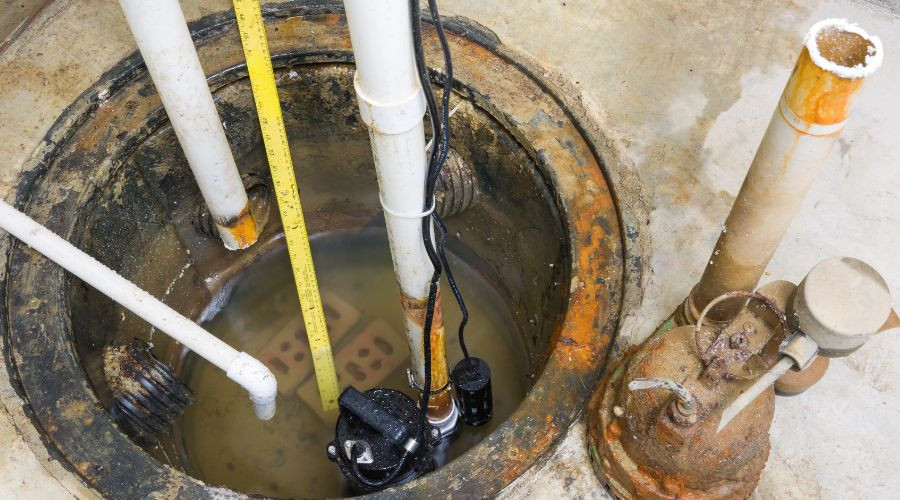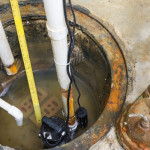Sump Pumps Protect Homes From Flooding and Water Damage
Homeowners should ensure their sump pumps are ready for spring storms by taking a few quick steps to protect their home from unwanted flooding, water damage, and costly repairs. If homeowners have ever worried about basement flooding, sump pump installation is an excellent solution. However, it’s crucial that they are working so they are able to protect the home. This post will discuss how sump pumps work and how to ensure they are working and able to protect the home when needed.
How Do Sump Pumps Work?
 Sump pumps serve as a home's first line of defense against basement flooding during spring thaws and heavy rainfall. These water removal systems activate automatically when groundwater levels rise, preventing flooding and potential water damage to the foundation and basement.
Sump pumps serve as a home's first line of defense against basement flooding during spring thaws and heavy rainfall. These water removal systems activate automatically when groundwater levels rise, preventing flooding and potential water damage to the foundation and basement.
When water enters the sump pump basin, a float mechanism or pressure sensor detects the rising water level. Once the water reaches a predetermined height, the sump pump's motor springs into action. The centrifugal force created by the spinning impeller pushes water up through the discharge pipe and safely away from the home. The entire process happens automatically thanks to the float switch mechanism.
Testing and Maintenance to Make Sure a Sump Pump Is Working Correctly
 Checking that a sump pump works correctly before spring rains arrive can prevent costly basement flooding disasters. Regular testing ensures the sump pump system remains reliable when water levels rise. Most homeowners can perform basic sump pump tests themselves in between professional maintenance visits.
Checking that a sump pump works correctly before spring rains arrive can prevent costly basement flooding disasters. Regular testing ensures the sump pump system remains reliable when water levels rise. Most homeowners can perform basic sump pump tests themselves in between professional maintenance visits.
To test a sump pump, start by pouring about 5 gallons of water or so into the sump pit. The float should rise and activate the sump pump automatically. If it doesn’t turn on automatically, plumbers should be called for sump pump repair. Also, inspect the discharge pipe outside the home to confirm water flows away from the house and its foundation. Blockages or backups here can render even a functioning sump pump useless during heavy rainfall.
Despite routine testing, professional sump pump maintenance and inspection remain essential for complete peace of mind. A plumbing technician can identify worn components and potential failure points that homeowners can miss. They'll check critical elements to ensure everything is working well. Most experts recommend annual service visits, ideally before the rainy season begins. Professional maintenance extends the sump pump's lifespan and ensures basement flood protection works when it’s needed most.
Why a Sump Pump Backup May Be Needed for Flood Protection
Primary sump pumps can experience mechanical failures, power outages, or become overwhelmed by extreme water volume, making a sump pump backup important to continue protecting the home. Power outages frequently coincide with severe storms, precisely when the sump pump is needed. However, without electricity, a standard sump pump becomes useless against rising water. Battery-powered backup sump pumps, water-powered backup systems, and other backup options can activate when power fails, continuing to protect the home and remove water.
Heavy spring rains may overwhelm a primary sump pump, making a backup sump pump system an important safeguard against flooding and water damage. When water tables rise during seasonal thaws, the main pump works to keep the home and basement dry. However, a home's protection shouldn't depend on a single point of failure. A secondary sump pump backup provides crucial protection during the wettest months when the sump pump fails or loses power.
About Swick Home Services
Swick Home Services is a plumbing, heating, and air conditioning company serving the Marquette area. They provide 24/7 support, an apples-to-apples price match guarantee, and beneficial membership plans. Call them for sump pump services in Marquette, MI.




